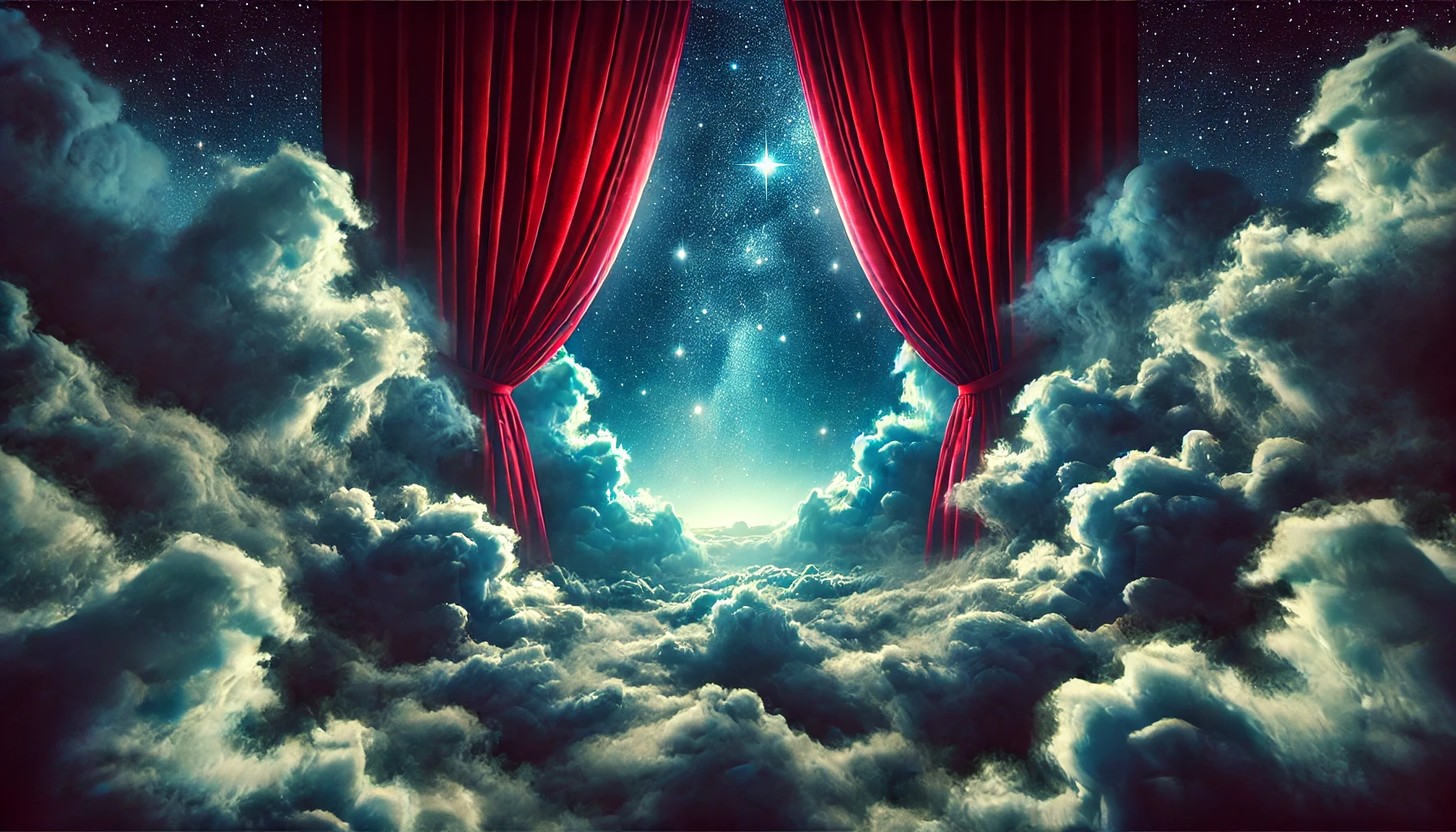🎯 Quick Overview
Trailer
- Director: Alan Crosland
- Genre: Drama, Music, Musical, Romance
- Release year: 1927
- Runtime (length): 1h 28min
- IMDb rating: 6.4/10 (11K votes)
- Rotten Tomatoes: 77%
😅 Plot Summary – Badly Explained
A cantor’s son puts on blackface, sings some bangers, and makes his dad proud, kinda.
🍿 The Jazz Singer: Detailed Plot Synopsis
Jakie’s Passion and Conflict
Cantor Rabinowitz expects his son Jakie to follow the family tradition of becoming a cantor. However, Jakie is drawn to the world of jazz and ragtime music, creating a significant conflict with his father. This passion leads him to perform in a local saloon, an act that deeply upsets his traditional father.
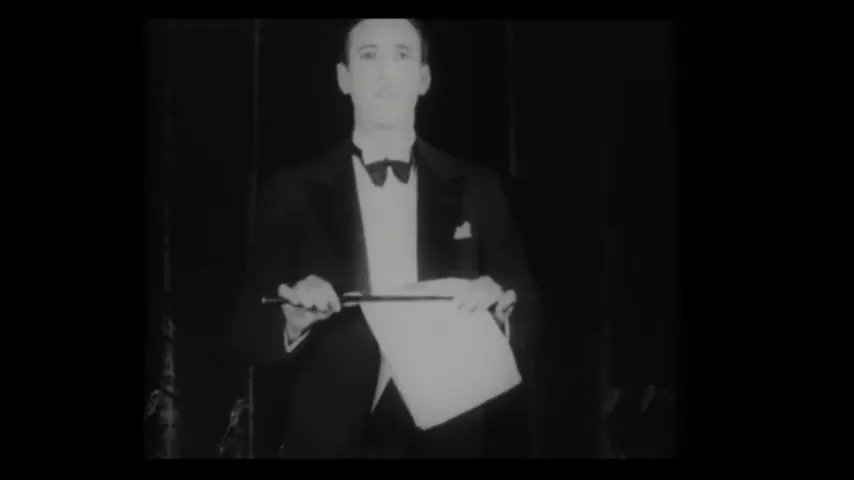
Leaving Home and Pursuing Dreams
After a severe argument and beating from his father, Jakie makes the difficult decision to leave home and pursue his dreams of becoming a jazz singer. He changes his name to Jack Robin and begins his journey to find success in the world of entertainment. This departure marks a significant break from his family and religious heritage.
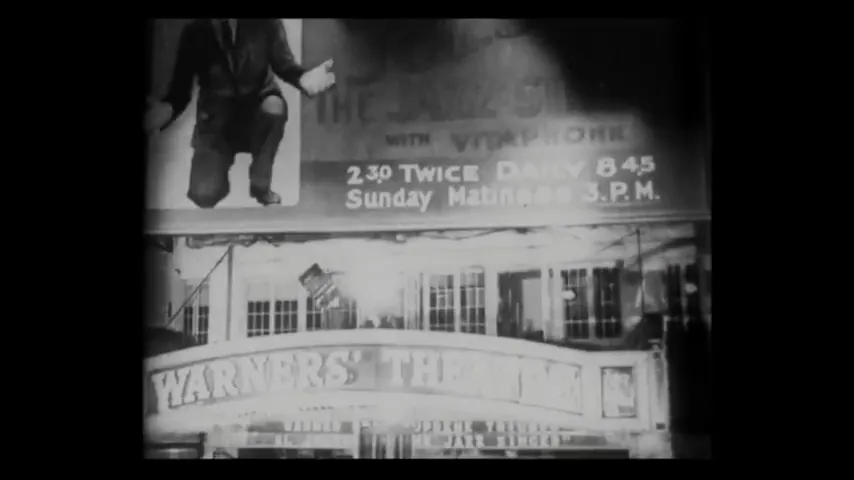
Rising Star and Family Reunion
Years later, Jack Robin gains recognition as a talented performer. With the help of Mary Dale, a stage performer, he gets a significant opportunity on Broadway. Returning to New York, he visits his family, hoping for reconciliation. However, his father remains unaccepting of his chosen path, leading to another painful separation.
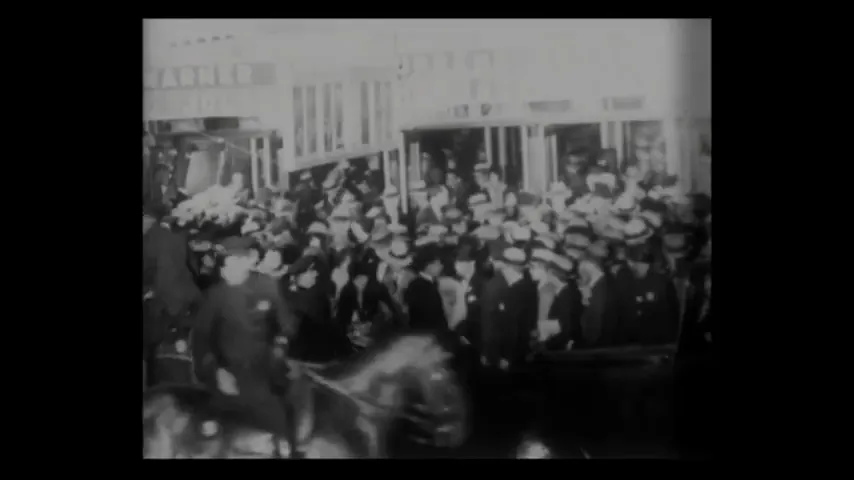
⚠️ Spoilers and Ending Explained
🎬 Cast & Characters
- Jakie Rabinowitz/Jack Robin (Al Jolson): The ambitious son of a cantor who defies his father’s wishes to pursue his dream of becoming a jazz singer.
- The Cantor (Warner Oland): The stern and traditional father who wants his son to follow in his footsteps as a cantor.
- Sara Rabinowitz (Eugenie Besserer): The loving and understanding mother who is caught between her husband’s traditions and her son’s dreams.
- Mary Dale (May McAvoy): A stage performer who recognizes Jack’s talent and helps him achieve his dreams.
- Moisha Yudelson (Otto Lederer): A family friend who informs the Cantor about Jakie’s ragtime singing, setting the story in motion.
💬 Memorable Quotes
- Jack Robin: “Wait a minute, wait a minute, you ain’t heard nothin’ yet! Wait a minute, I tell ya! You ain’t heard nothin’!” – Spoken by Jack Robin during his performance, this line marked one of the first instances of synchronized dialogue in a feature film.
- Jack Robin: “Mama, I still have you.” – Sung by Jack Robin/Jakie to his mother, expressing his enduring love and connection despite his career choices.
- Mary Dale: “There are lots of jazz singers, but you have a tear in your voice.” – Mary Dale tells Jack, recognizing his unique and emotional singing style.
- Cantor Rabinowitz: “I never want to see you again – you jazz singer!” – The Cantor says this in anger when Jakie returns home, expressing his disappointment and rejection of his son’s chosen path.
- Cantor Rabinowitz: “Mama, we have our son again.” – Said by Cantor Rabinowitz on his deathbed, expressing reconciliation and acceptance of Jakie’s life choices.
💰Box Office
- Budget: $422,000
- Domestic Gross: Unknown
- Worldwide Gross: Unknown
💥 The Jazz Singer Reviews
Personal Review
Okay, so ‘The Jazz Singer’ is definitely a product of its time. The blackface is cringe-worthy, no doubt. But seeing Al Jolson belt out those songs, and especially that moment when he speaks on screen for the first time, gives me chills. It’s a window into the past, and a reminder of how far cinema has come. I felt a strange mix of fascination and discomfort watching this. I was moved when he sings “Blue Skies” to his mom! It’s a rough watch sometimes, but worth it for historical value and Jolson’s energy.
- Who would enjoy:
- “Film history enthusiasts”
- “Those interested in early sound films”
- “People curious about Al Jolson’s work”
- “Viewers interested in stories about cultural conflict”
- Content warnings ⚠:
- “Use of blackface”
- “Religious themes”
- “Parent-child conflict”
Professional Reviews
- The New York Times: “A groundbreaking achievement in filmmaking, ‘The Jazz Singer’ transcends its technical limitations with Al Jolson’s magnetic performance and a heartfelt story of tradition versus modernity. It’s a film that must be seen to understand its place in cinematic history.
- Variety: “Though the plot may feel dated and the acting melodramatic by today’s standards, ‘The Jazz Singer’ remains a landmark film for its introduction of synchronized sound. Jolson’s singing is undeniably powerful, and the film’s impact on the future of cinema is undeniable.
- The Guardian: “Even with the inclusion of blackface performances that are hard to stomach today, ‘The Jazz Singer’ is a crucial piece of film history. It depicts a clash between old and new, family and personal ambition, with Jolson delivering moments of genuine emotional resonance.
Audience Reactions
Al Jolson’s performance is captivating and unforgettable.: Viewers are struck by the historical importance of the film and Al Jolson’s dynamic stage presence and his groundbreaking musical performances.
The film highlights the generational conflict of balancing tradition and modernity.: Many viewers connect with the film’s exploration of family expectations versus personal dreams, even though the specific cultural context may be unfamiliar.
Overall Consensus: A landmark film in cinematic history, ‘The Jazz Singer’ is appreciated more for its technical innovation and Al Jolson’s performance than for its dated plot and problematic elements. Essential viewing for film buffs.
Awards
🛠️ Behind the Scenes
- “George Jessel was originally slated to play the lead role but was replaced by Al Jolson after a salary dispute.”
- “The film is based on a short story called ‘The Day of Atonement’ by Samson Raphaelson, who was inspired by Al Jolson’s own life and stage presence.”
- “Although promoted as the first ‘talkie,’ The Jazz Singer is primarily a silent film with several synchronized singing sequences and a few instances of spoken dialogue.”
- “Al Jolson ad-libbed some of his lines during the sound sequences, adding to the film’s spontaneity and novelty for audiences at the time.”
- “The use of Vitaphone technology, which synchronized sound with the film using separate phonograph records, presented technical challenges during production and exhibition.”
🖥️ How to Watch The Jazz Singer?
As a classic film, ‘The Jazz Singer’ can be found on various streaming services, rental platforms, and for purchase on physical media. Check platforms like Amazon Prime Video, Apple TV, and Google Play Movies for rental or purchase options. Availability may vary by region.
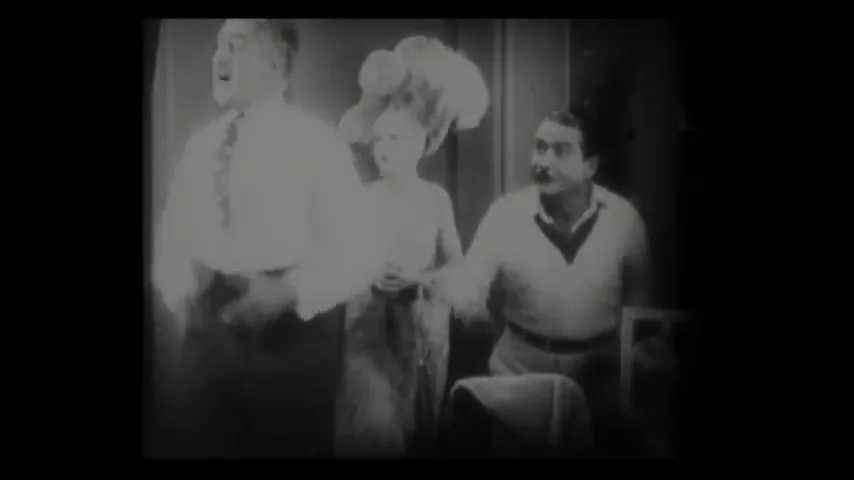
🎥 Similar Movies
If you enjoyed The Jazz Singer, you might like these similar films:
- Singin’ in the Rain (1952): Depicts Hollywood’s transition from silent films to talkies, similar to The Jazz Singer’s historical context.
- Yentl (1983): Explores conflicts between tradition and personal ambition within a Jewish family, mirroring The Jazz Singer’s themes.
- Coal Miner’s Daughter (1980): Biographical musical drama about Loretta Lynn’s rise to fame, similar theme of balancing family expectations with career aspirations.
- Burlesque (2010): Showcases a young talent pursuing musical dreams, reminiscent of Jakie’s journey in The Jazz Singer.
- La La Land (2016): Explores the balance between artistic ambition and personal relationships in the entertainment industry, echoing thematic elements from The Jazz Singer.
🛒 The Jazz Singer Related Products
- Al Jolson: The Complete Brunswick & Vocalion Recordings, Vol. 1: 1917-1925: This extensive collection features Al Jolson’s early recordings, giving fans a chance to hear the songs that made him a star. It captures the essence of his performance style before ‘The Jazz Singer’.
- The Jazz Singer (1927) – Restored Blu-ray: This special edition blu-ray features a high-definition transfer of the original film, offering the best possible viewing experience. It also includes behind-the-scenes documentaries about this groundbreaking film.
- Al Jolson: A Biography: Explore the life and times of Al Jolson, from his early days on stage to his groundbreaking role in ‘The Jazz Singer.’ This biography delves into his personal struggles and career triumphs.
- Vintage Sheet Music: My Mammy: Own a piece of musical history with this vintage sheet music of ‘My Mammy,’ one of Al Jolson’s most iconic songs featured in ‘The Jazz Singer.’ This collectible item represents the era’s popular music.
🎧 Soundtrack
The Jazz Singer features a captivating soundtrack that enhances the movie’s atmosphere and emotional impact. Here are some notable tracks:
- “My Mammy” – performed by Al Jolson
- “Toot, Toot, Tootsie Goodbye” – performed by Al Jolson
- “Blue Skies” – performed by Al Jolson
- “Kol Nidre” – performed by Cantor Josef Rosenblatt
You can find the complete soundtrack on Amazon Music and Apple Music.
🤨 FAQ
The Jazz Singer is considered the first feature-length “talkie” film, meaning it was one of the first to include synchronized dialogue and singing. This marked a major turning point in the film industry, transitioning from silent films to sound films.
The film is controversial due to Al Jolson’s use of blackface in some of the musical numbers. While blackface was a common theatrical practice at the time, it is now widely considered offensive and racist.
The central conflict revolves around Jakie Rabinowitz’s desire to become a jazz singer versus his father’s expectation that he will continue the family tradition of becoming a cantor. This conflict explores themes of tradition versus modernity, family obligation versus personal fulfillment, and cultural identity.
🔥 Bonus Content
Al Jolson – Misunderstood Hero or Villain?
Ever wondered if Al Jolson was really a good guy? This video dives into the controversies surrounding the star of “The Jazz Singer,” and it’s honestly fascinating to see the different perspectives. It’ll definitely make you think!
The Spoken Words That Caused A Sensation In “The Jazz Singer” (1927)
Did you know “The Jazz Singer” wasn’t entirely a talkie? This short video highlights the impact of the few spoken lines in the movie and how they changed cinema forever! It’s a cool, quick look at film history.
✨ Rate
There are no reviews yet. Be the first one to write one.

